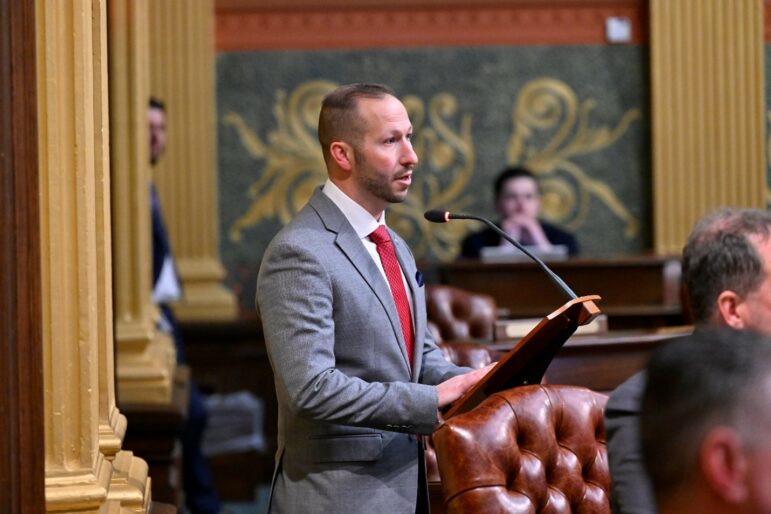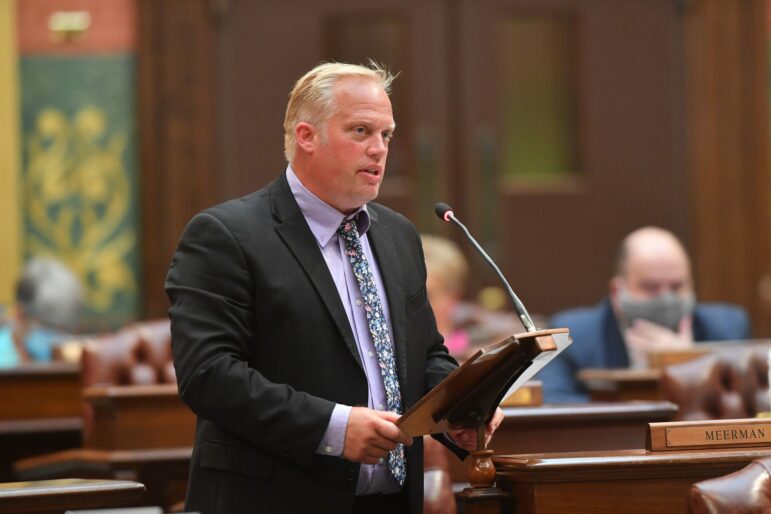
By VICTOR WOODDELL
Capital News Service
LANSING – Could a single “swing county” in Michigan determine the presidential election for the rest of the state?
According to experts, a swing county is large enough to affect the statewide vote, yet historically is so evenly split between the two parties that it could go either way in the next election.
According to data from Ballotpedia, an election data website, Michigan has 13 counties that voted for Democrat Barack Obama in 2008 and 2012 before swinging to Republican Donald Trump in 2016, then went to Democrat Joe Biden in 2020.
The largest are Saginaw, Muskegon and Kent. The others are Bay, Calhoun, Eaton, Gogebic, Isabella, Lake, Macomb, Manistee, Monroe, Shiawassee and Van Buren counties.
Trump won Michigan by less than 11,000 votes in 2016, and Biden by 154,188 votes four years later. Such counties can have a disproportionate impact upon statewide election results, political scientists say.
Michigan is considered a “swing state” in the national election, so one county could impact who is elected president, according to experts.
“Turnout in larger counties can affect election outcomes, and large counties that swing have been key bellwethers in past elections,” according to a recent study by professors John Klemanski, David Dulio and Douglas Carr at Oakland University.
The popular vote outcome in swing states is actually determined by a few “swing counties” in those states, they said.
Rep. Matthew Bierlein, R-Vassar, which includes Saginaw County, said, “I think this election in particular is so close because of how much our electorate is divided on key issues.”
Polarization explains the split, Bierlein said.
Key issues include the economy, health care, immigration and public safety.
Also, between 60% and 70% of voters believe the country is on the wrong track, according to recent polls, he said.
Leaders of both major parties are confident of winning this election, despite how close the race is.
Aileen Pettinger is chair of the Saginaw County Democratic Party.
“Absolutely it is going to be close,” Pettinger said, “but I am cautiously optimistic.”
Pettinger said she believes that when Biden dropped out in favor of Harris, it added energy to her base. “We had five door-knockers when it was Biden,” she said. “Now we have 50.”
Saginaw County Democrats have reached out to Republican women who might swing their vote to Democratic nominee Kamala Harris.
“We held a tri-county bake party,” she said, “and it filled the hall.”
Some efforts to reach swing voters have been low key, according to Pettinger.
For example, “There is an underground movement to put Post-It notes in places like women’s bathroom stalls with the message that their vote is private, and they should vote for Harris,” she said.
“Some of them have QR codes with information where to vote in person,” because they might feel less embarrassed about voting for the other party that way, she said.
Yet the Republicans also express confidence.
Eric Kowalewski, an executive committee member of the Saginaw Republican Party, said Trump supporters are also reaching out to local Democrats who might swing their way.
“We go door knocking in Precinct 11, and 38% of the people we talk to say they are voting for Trump,” he said. Precinct 11 is in the city of Saginaw, an area that traditionally votes for Democrats.
Rep. Bierlein agrees.
“We have been hard at work trying to mobilize voters by knocking on doors for candidates up and down the ballot, educating voters on new early voting and absentee voting rules, and phone banking,” he said.
Rep. Luke Meerman, R-Coopersville, said the vote in his district, which covers parts of Ottawa, Kent and Muskegon counties, is close.

”Ottawa County is right on the edge. It’s been Republican for a while, but it’s moving, and depending on how enthused Republicans are, that determines how many will get out and vote,” he said.
Meerman said the issues driving his constituents are inflation, immigration and education.
“Grocery store prices and the tightening of the pocketbook are hurting voters, ” he said. “My wife and I have felt it in our own budget.”
He also expressed dismay at the extreme level of political polarization.
“We may disagree on politics, but that’s no reason to hate the person,” he said. “Let’s not let politics divide us.